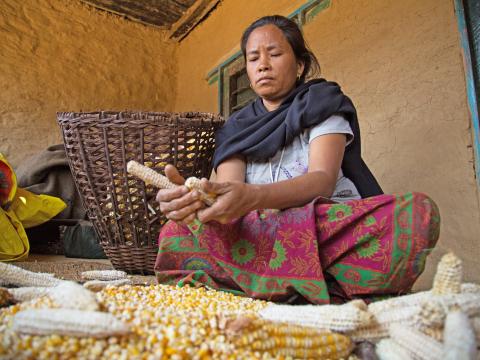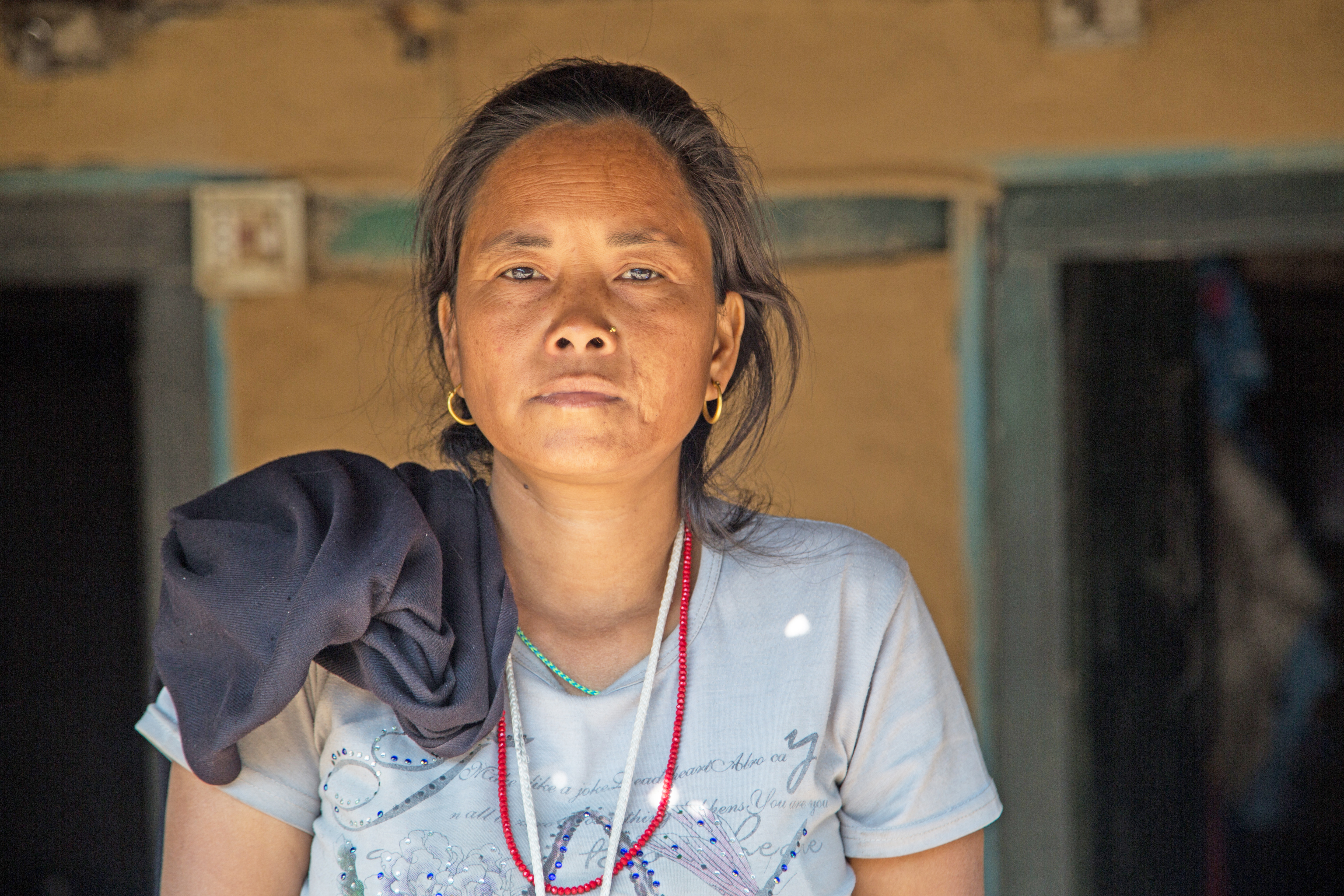Helping a grieving mother

The pain of losing a young daughter can be understood better by no one except a mother.
Nanda, 42, lost her spirited 20-year-old girl to the devastating earthquake of 2015. The relief of surviving was short-lived for Nanda and her two daughters who survived the earthquake but lost a beloved member of their family.
When Nanda's husband abandoned her with three daughters who were 14, 15 and 20 she had to suddenly shoulder the responsibility of being both father and mother to her daughters. "I was heartbroken. Suddenly, I was responsible for taking care of the children as well as running the house. It was difficult," she recollects.
Toiling hard in the field all day, her meagre earnings were insufficient to meet the needs of both house and children.
However, she had to keep going, somehow.
The anguish of being left by her husband had taken its toll on Nanda. In the beginning she was unable to overcome her grief. "Time passed. And we slowly embraced the reality and moved on with life. I found solace in my daughters," Nanda shares.
Alas, in a moment tragedy struck. Her daughter became a victim of the disaster. More than a year after the earthquake, the bitter memory of that ill-fated incident still haunts Nanda. This grief-stricken mother's eyes fill with tears every time she recalls that unfortunate day.
"I was working in the field that day and the ground suddenly started shaking vigorously. I couldn't get hold on myself. First, I didn't realise that it was an earthquake. When I did, I thought of nothing but my children. I was anxious if they were safe or not," she recounts her ordeal.
Barely conscious from the shock of the earthquake, the worried mother frantically rushed towards her house which by then was nothing but a heap of debris. "When I got there, I saw that our house had totally collapsed. My heart pounded and my legs shook with the thought that my girls could be trapped inside," she says.
The distressed mother had a moment’s relief when she saw two of her daughter safe outside but the eldest was nowhere to be seen.
Her heart sank again as she sensed the loss.
"When we didn't find her anywhere, it was clear that she was trapped inside," she says. "With the help of some neighbours, we dug into the debris. I was praying desperately to see her alive. But all was in vain," shares Nanda, wiping her tears.
Nanda was distraught when her daughter was discovered lifeless underneath the rubble.
"I was not able to take care of my two daughters who did not have any proper place to live or food to eat. We lived like cows and buffaloes under a small tarp and fed on the food provided by some organisations," she remembers.
The majority of houses in Ghyachowk Village Development Committee, Gorkha, near the epicenter were damaged. For a few months, most of the village people lived under tarps and tents. Later they began moving to temporary shelters.
Unlike others, shifting to a shelter with a better roof was not an easy choice for grief-stricken Nanda, who had hardly any support but somehow she managed to make a small makeshift shelter. Making a new house, though, seemed a distant reality.
"I was eager to prove that I was capable to do everything. I didn't want my daughters to regret that they did not have a father."
"My neighbours thought that I was helpless. They told me that a single mother like me can never build a house on my own. Everybody said that I will never have a house again," she says. Hearing these words saddened Nanda, but she was determined. "I was eager to prove that I was capable to do everything. I didn't want my daughters to regret that they did not have a father."
Nanda felt even more determined when World Vision provided her corrugated galvanised iron (CGI) sheets that were distributed to 482 households in Ghyachowk.
"I took a loan. And with the usable remains from old house and CGI sheets, I started to build my house. In a few months, what my neighbours thought impossible ha become a reality. We had a new and a proper house," Nanda says in a triumphant tone.
While most of the people in Nanda's community were still waiting for the grants promised by the government to construct their houses, Nanda was impatient to get going. Now, her house is one of very few in her community to have been rebuilt.
Since her house is already rebuilt she thinks she may not be able to claim the grant which she might have received from the government. But this hardly matters to her. Though the loss of a daughter will leave a scar on her heart forever, Nanda can now take pride in that fact that she was able to shoulder a father’s responsibility.
